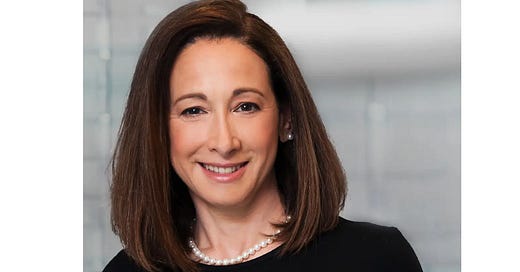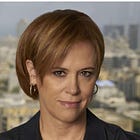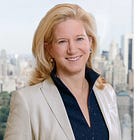This article is part of Fintech Leaders, a newsletter with almost 70,000 builders, entrepreneurs, investors, regulators, and students of financial services. I invite you to share and sign up! Also, if you enjoy this conversation, please consider leaving a review on Apple Podcasts or Spotify so more people can learn about us.
Melissa Guzy is the Co-Founder and Managing Partner of Arbor Ventures, a global fintech-focused fund with offices across Asia, the Middle East, Europe, and the US. Founded in 2012, some of their portfolio companies include Tabby, TrueAccord, Grab, and Fundbox.
In this episode, we discuss:
Melissa’s early days as a VC investor at VantagePoint Capital where they navigated the dot com crash and later invested in Tesla’s Series A
“When I first joined VantagePoint [in 2001], I don't think we did an investment for two years. And so my first two years were basically clean up and right-size.”
Melissa joined VantagePoint in January of 2001, just as the dotcom crash was starting to unravel. She credits this challenging period as a time to hone her ability to adapt and manage crises, as she focused mostly on right-sizing companies and helping CEOs manage burn rates, which required a systematic and rigorous approach to stabilize the portfolio. It was only two years after Guzy joined that the partnership started investing in new companies, and one of those companies turned out to be Tesla.
VantagePoint led Tesla's Series A. Melissa recalls the early days of the company were marked by a lack of conventional business plans and detailed presentations. Instead, Elon Musk and Martin Eberhard led with a compelling narrative and channeled their inspiring vision. But despite Musk's unproven track record in running a company day-to-day, the partners at VantagePoint saw the potential in his bold vision to disrupt the automotive industry and narrowly decided to back him. The vote was close, 6 partners voted in favor and 5 partners voted against. Over the years, Musk's perseverance and grit, coupled with favorable market conditions like high oil prices driving demand for alternatives, played a crucial role in overcoming all sorts of hurdles Tesla faced. This showed Melissa that success is not guaranteed by a perfect plan or idea; rather, it often comes from the ability to push through difficulties and maintain an open mind about unconventional opportunities.
Building Arbor Ventures and pioneering fintech investing in China, Southeast Asia, and the Middle East
“I used to apologize, by the way, for the first decade for being global. I no longer apologize, I actually think it's played to our to our advantage.”
After moving to Asia to open an office for VantagePoint, Melissa became captivated by the rapid advancements in financial services in the region, particularly in China, where innovation in online banking, QR code payments, and embedded finance was thriving. It was during this time that she saw an opportunity to build a new fintech-focused fund and launched Arbor Ventures with a modest $12 million fund in 2012. Arbor aimed to bridge the gap between Western skepticism and Eastern innovation, eventually gaining significant support from notable backers like Fidelity and Asian family offices with deep ties to the financial sector.
A key to Arbor's success has been cultivating a team with a truly global mindset. Guzy emphasizes the importance of embracing local cultures and dynamics rather than trying to impose Silicon Valley norms. All of her team members have lived in multiple countries, bring diverse perspectives and an openness to learn from each market they enter.
How Arbor has successfully generated liquidity from fintech investing in emerging markets
“I think about liquidity on day one.”
Melissa reminds investors about the importance of considering liquidity options right from the start of an investment, especially in emerging markets. Assessing the viability of an IPO and understanding potential acquisition scenarios is crucial to understand for each company in a VC portfolio. She recommends founders focus on cultivating relationships at least 24 months in advance of any potential M&A talks. Not just to find obvious business synergies, but to find common ground and build personal rapport that can later influence the willingness of acquirers to move forward. Melissa’s approach with founders involves being a supportive partner, offering honest feedback and different perspectives to help navigate towards a successful exit, while ensuring that both the company and its investors are well-served.
Why real-time payment networks and CBDCs have the potential to transform fintech… and a lot more!
“These real time payment networks and their connectivity, is a significant and probably one of the greatest changes we're going to see in payments globally.”
Melissa’s Book Recommendations:
Want more podcast episodes? Join me and follow Fintech Leaders today on Apple, Spotify, or your favorite podcast app for weekly conversations with today’s global leaders that will dominate the 21st century in fintech, business, and beyond.


























Share this post